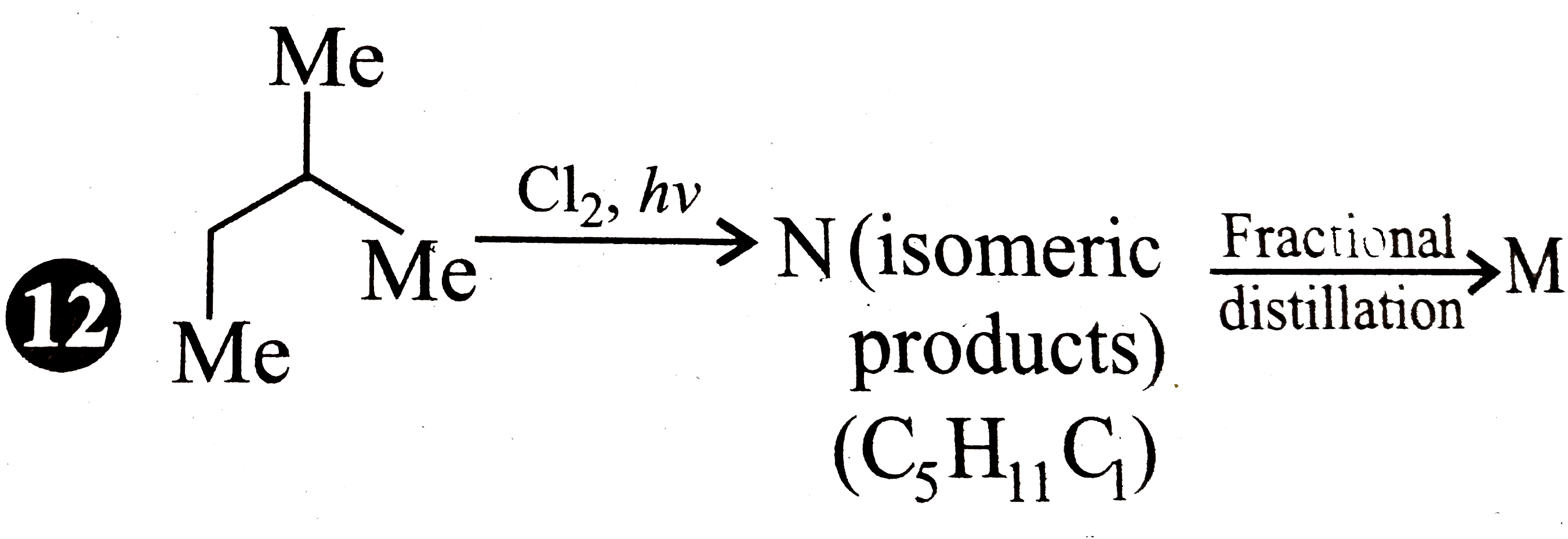Single Correct from CENGAGE CHEMISTRY (HINGLISH) ALKANES AND CYCLOALKANES for Class 11
| Class 11 | CHEMISTRY |
| Chapter | ALKANES AND CYCLOALKANES |
| CENGAGE CHEMISTRY (HINGLISH) | Single Correct |
| Medium | English |
| Academic Year | 2023-2024 |
Question 6
There are six isomeric alkenes (A, B, C, D, E, and F) that require 1 mol of H2 per mole of alkene for hydrogenation and give the same product (G) on hydrogenation. G is an alkane having the lowest molecular mass and is optically active. Write the structure of compounds from A to G.View SolutionQuestion 7
There are five isomeric alkenes (A, B, C, D, and E) that require 1 mol of H2 per mole of alkene for hydrogenation and give the same product (F) on hydrogenation. F is an alkane having the lowest molecular mass and is opticalar mass and is optically active. Write the structures of the compounds from A to F.View SolutionQuestion 13
In the study of chlorination of propane, four prouducts A, B, C, and D of the formula C3H6C12 were isloated. Each of then was further chlorinated to provide trichloro products, C3H5C13 . It was found that A provided one trichloro product, B gave two, and C and D each gave three. What the structural of A, B, C, and D ?View SolutionQuestion 30
Twenty millilitres of a gaseous hydrocarbon (A) was exploded with excess of oxygen in eudiometer tube. On cooling, the volume was reduced by 50ml. On further treatement with KOH solution, there was a further contraction of 40 ml.
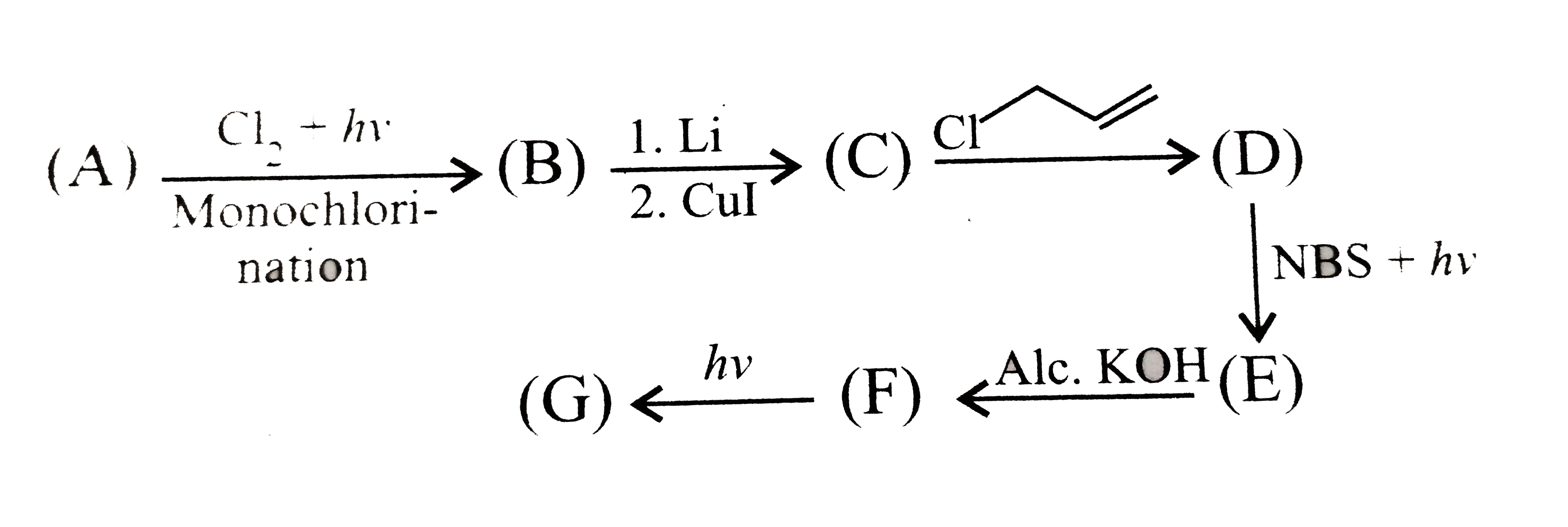
The molecular formula of the hydrocarbon (A) is:View SolutionQuestion 36
Five millilitires of a gas (A) containing only C and H was mixed with an excess of oxygen (30 ml) and the mixture was exploded by means of an electric spaek. After the explosion, the remaining volume of the mixed gasses was 25 ml. On adding a concentrated solution of KOH, the volume further diminished to 15 ml. The residual gas being pure oxyges.

The molecular formula of gas (A) is:View SolutionQuestion 37
Five millilitires of a gas (A) containing only C and H was mixed with an excess of oxygen (30 ml) and the mixture was exploded by means of an electric spaek. After the explosion, the remaining volume of the mixed gasses was 25 ml. On adding a concentrated solution of KOH, the volume further diminished to 15 ml. The residual gas being pure oxyges.

Compound (B) is: View SolutionQuestion 38
Five millilitires of a gas (A) containing only C and H was mixed with an excess of oxygen (30 ml) and the mixture was exploded by means of an electric spaek. After the explosion, the remaining volume of the mixed gasses was 25 ml. On adding a concentrated solution of KOH, the volume further diminished to 15 ml. The residual gas being pure oxyges.

Compound (C) is:View SolutionQuestion 39
Five millilitires of a gas (A) containing only C and H was mixed with an excess of oxygen (30 ml) and the mixture was exploded by means of an electric spaek. After the explosion, the remaining volume of the mixed gasses was 25 ml. On adding a concentrated solution of KOH, the volume further diminished to 15 ml. The residual gas being pure oxyges.

Compound (D) is:View SolutionQuestion 40
Five millilitires of a gas (A) containing only C and H was mixed with an excess of oxygen (30 ml) and the mixture was exploded by means of an electric spaek. After the explosion, the remaining volume of the mixed gasses was 25 ml. On adding a concentrated solution of KOH, the volume further diminished to 15 ml. The residual gas being pure oxyges.

Compound (E) is:View SolutionQuestion 41
Five millilitires of a gas (A) containing only C and H was mixed with an excess of oxygen (30 ml) and the mixture was exploded by means of an electric spaek. After the explosion, the remaining volume of the mixed gasses was 25 ml. On adding a concentrated solution of KOH, the volume further diminished to 15 ml. The residual gas being pure oxyges.

Compopund (F) is: View SolutionQuestion 46
A schematic analysis of the reaction of the enantiomer with racemic mixture is shows below:
d+d and l−−→(d)−(d)The(+)-form ofA racemic mixture of+chiral moleculesother molecules with(d)−(l)50%(d)and50%(l)
The products (d-d) and (d-l) are clearly neither identical nor enantiomers (non-superimposable mirror images) as the diastereomers, stereoisomers that are not mirror images' . The formation of diasteromers allows the separation of enantiomers (called resolution) which is not easy as enantiomers have identical physical properties. One general with naturally occurring chiral molecule to form a pair of diastereomers. These can be separated easily as they have different physical properties. If the original chemical reaction can be reversed, the enantiomers can be isolated.
Which of the following is an example of diastereomers ?View SolutionQuestion 47
A schematic analysis of the reaction of the enantiomer with racemic mixture is shows below:
d+d and l−−→(d)−(d)The(+)-form ofA racemic mixture of+chiral moleculesother molecules with(d)−(l)50%(d)and50%(l)
The products (d-d) and (d-l) are clearly neither identical nor enantiomers (non-superimposable mirror images) as the diastereomers, stereoisomers that are not mirror images' . The formation of diasteromers allows the separation of enantiomers (called resolution) which is not easy as enantiomers have identical physical properties. One general with naturally occurring chiral molecule to form a pair of diastereomers. These can be separated easily as they have different physical properties. If the original chemical reaction can be reversed, the enantiomers can be isolated.
Which of the following is not true ?View SolutionQuestion 48
A schematic analysis of the reaction of the enantiomer with racemic mixture is shows below:
d+d and l−−→(d)−(d)The(+)-form ofA racemic mixture of+chiral moleculesother molecules with(d)−(l)50%(d)and50%(l)
The products (d-d) and (d-l) are clearly neither identical nor enantiomers (non-superimposable mirror images) as the diastereomers, stereoisomers that are not mirror images' . The formation of diasteromers allows the separation of enantiomers (called resolution) which is not easy as enantiomers have identical physical properties. One general with naturally occurring chiral molecule to form a pair of diastereomers. These can be separated easily as they have different physical properties. If the original chemical reaction can be reversed, the enantiomers can be isolated.
How many diastereomers are possible among all the possible stereoisomers of 2,3-dibromopentane ?View SolutionQuestion 49
State whether each of the following is true or false.
a. Photobromination of 2-methylpropane gives a mixture of 1-bromo-2-methylpropane gives a mixture of 1-bromo-2-methylpropane and 2-bromo-2-methylpropa ne in the ratio 9:1
b. The percentage of n-propyl chloride obtained in the chlorination of propane is about 56%.
c. The percentage of 1-chloro-2-methylpropane obtained in the chlorination of isobutane is about 64%.
d. The percentage of n-propyl bromide in the bromination of propane is 44% . The relative reactives of 3∘ , 2∘ and 1∘ H atoms are 1600:82:1 .View SolutionQuestion 50
a. A hydrocarbon contains all the three tyopes of H atoms, i.e., 1∘,2∘ , and 3∘ . The relative ratios of abstraction of …………………… H atoms are 5.0:3.8:1.0 .
c. The relative rate of abstraction of 3∘,2∘ , and 1∘ H atoms is maximum for ................... H atoms.
d. The relative rate of abstraction of 3∘,2∘ , and 1∘ H atoms is minimum for ................. H atoms. View SolutionQuestion 51
a. Statement- 1 and Statement- 2 are true, and state-ment- 2 is the correct explanation of Statement- 1.
b. Statement- 1 and Statement- 2 are true but Statement- 2 is not the correct explanation of Statement- 1.
c. Statement- 1 is true and Statement- 2 is false.
d. Statement- 1 is false and Statement- 2 is true.
e. Statement- 1 is false and Statement- 2 is false.
Statement- 1:
Compound (I) is formed not (II).
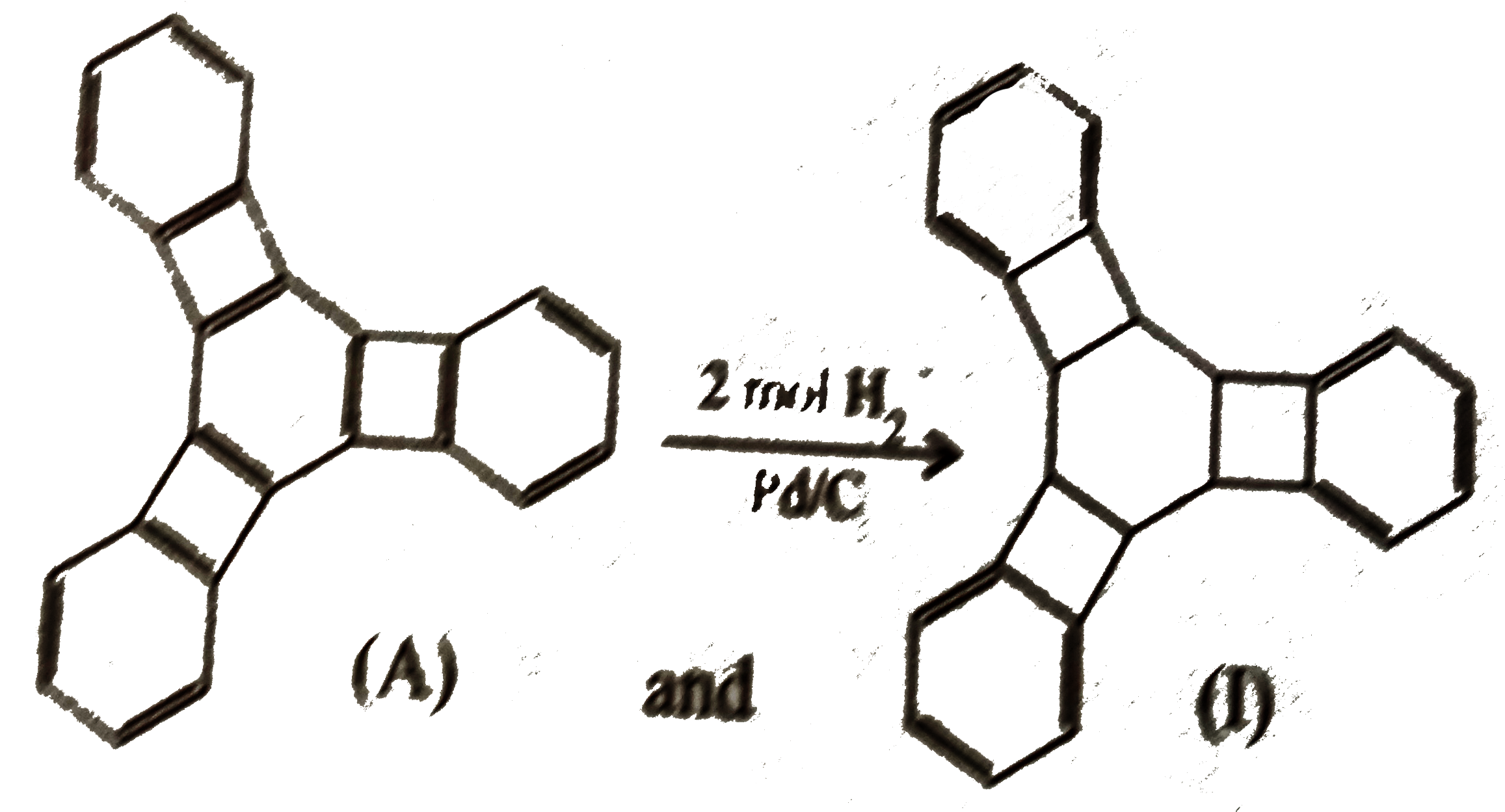 and
and 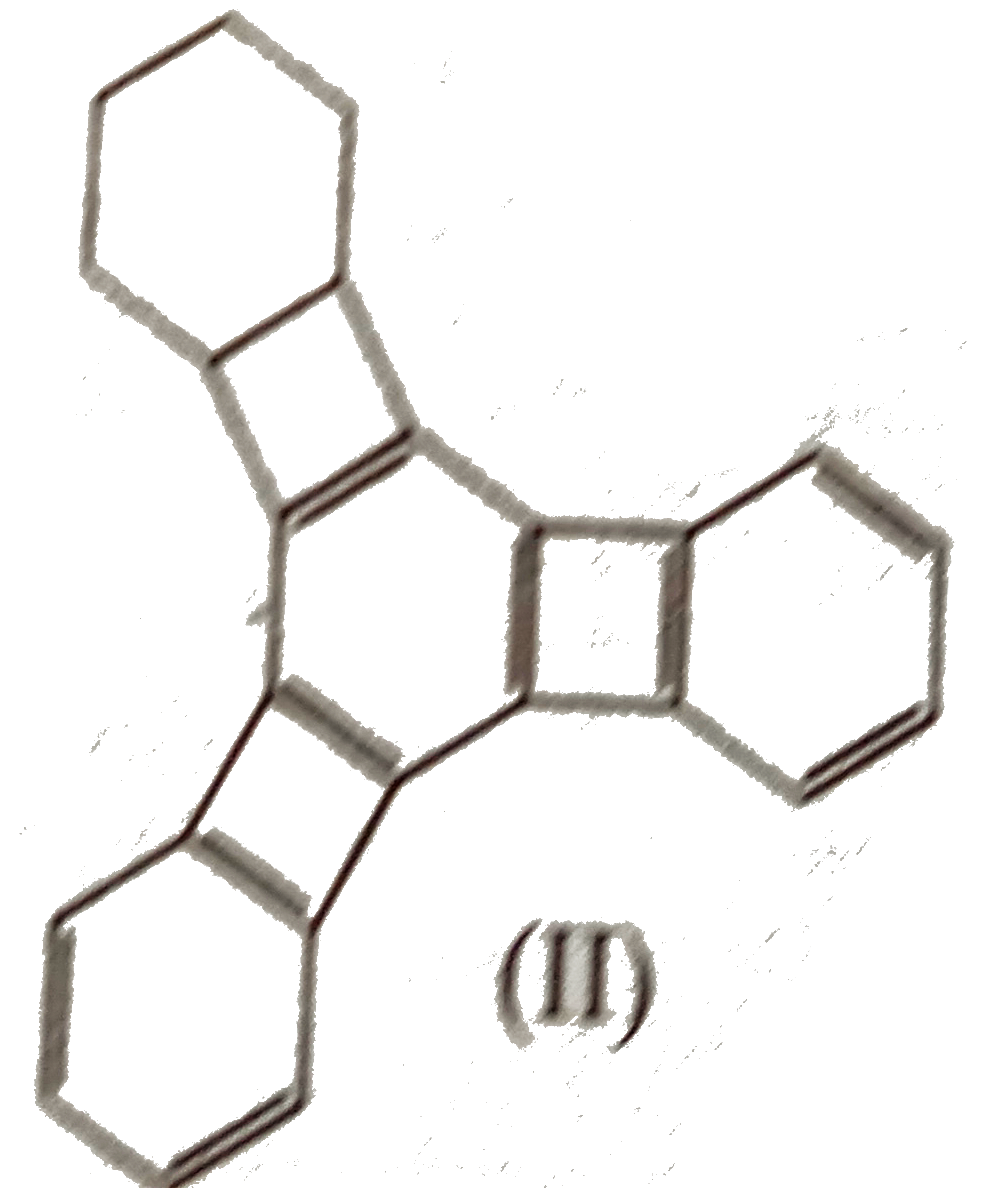
Statement- 2:
Due to the reduction of central ring, 3 four-membered anti-aromatic rings become stable to from (I). In (II), due to the reduction of terminal ring, only one anti-aromatic ring can be stabilised.View SolutionQuestion 52
a. In compound (A), number of aromatic, antiaromatic, and non-aromatic rings are 4, 3, and 0, respectively.
b. In product (I), the number of aromatic, antiaromatic, and non-aromatic rings are 3, 0, and 4, respectively.
c. In product (II), the number of aromatic, antiaromatic, and non-aromatic rings are 3, 2 and 2, respectively.
The stability order is: aromatic gt antiaromatic gt nonaromaticView SolutionQuestion 76
Which of the statement is correct ?
I. Melting point of alkane increases with increase of C atoms and with increase in branching.
II. Boiling point of alkane increases with increase of C atoms but with decrease in branching.
III. Cycloalkanes have lower boiling point than normal alkane with same numer of C atoms.
IV. Alkenes have lower boiling point than same number of C atoms in alkanes.View SolutionQuestion 82
Which of the statement is/are true about the reactivity of halogenation of alkanes ? The reactivity ordar is F2>C12>Br2>I2 .
I. Lower the activation energy for the chain initiation step, more reactive is the halogen.
II. Lower the activation energy for the first chain propagation step, more reactive is the halogen.
III. More negative is the overall heat of the reaction (ΔH∘r) of halogenation ofg alkane, more reactive is the halogen.
IV. Lower the activation energy for the second chain-propagation step, more reactives is the halogen.View Solution
All Exercises from CENGAGE CHEMISTRY (HINGLISH) Class 11 CHEMISTRY ALKANES AND CYCLOALKANES
- ARCHIVES
- EXERCISES
- FILL IN THE BLANKS
- MCQ
- PARAGRAPH FOR PROBLEM
- REASONING AND ASSERTION
- SINGLE CORRECT
- TRUE AND FALSE
- ARCHIVES
- EXERCISES
- FILL IN THE BLANKS
- MCQ
- PARAGRAPH FOR PROBLEM
- REASONING AND ASSERTION
- SINGLE CORRECT
- TRUE AND FALSE
- ARCHIVES
- EXERCISES
- FILL IN THE BLANKS
- MCQ
- PARAGRAPH FOR PROBLEM
- REASONING AND ASSERTION
- SINGLE CORRECT
- TRUE AND FALSE
- ARCHIVES
- EXERCISES
- FILL IN THE BLANKS
- MCQ
- PARAGRAPH FOR PROBLEM
- REASONING AND ASSERTION
- SINGLE CORRECT
- TRUE AND FALSE
- ILLUSTRATION
- SOLVED EXAMPLES
- ILLUSTRATION
- SOLVED EXAMPLES
- ILLUSTRATION
- SOLVED EXAMPLES
- ILLUSTRATION
- SOLVED EXAMPLES
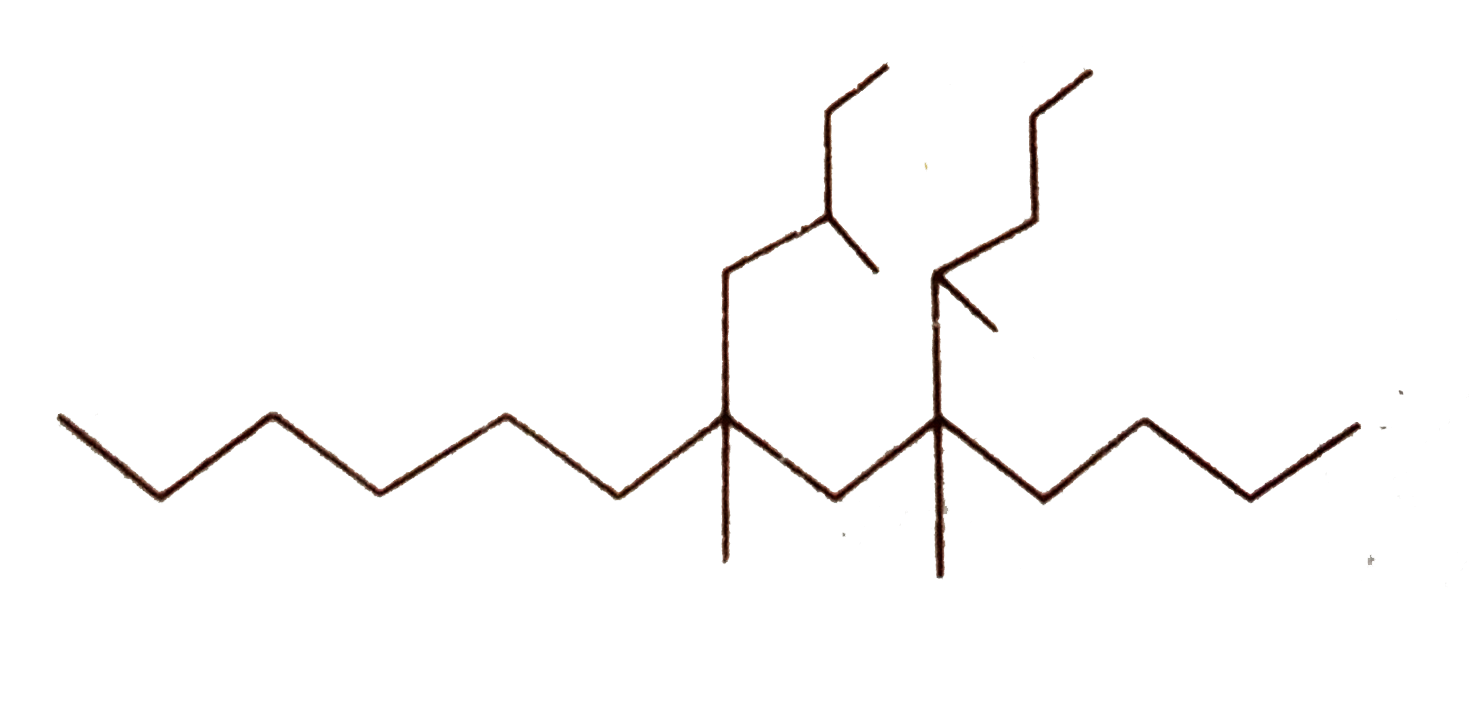
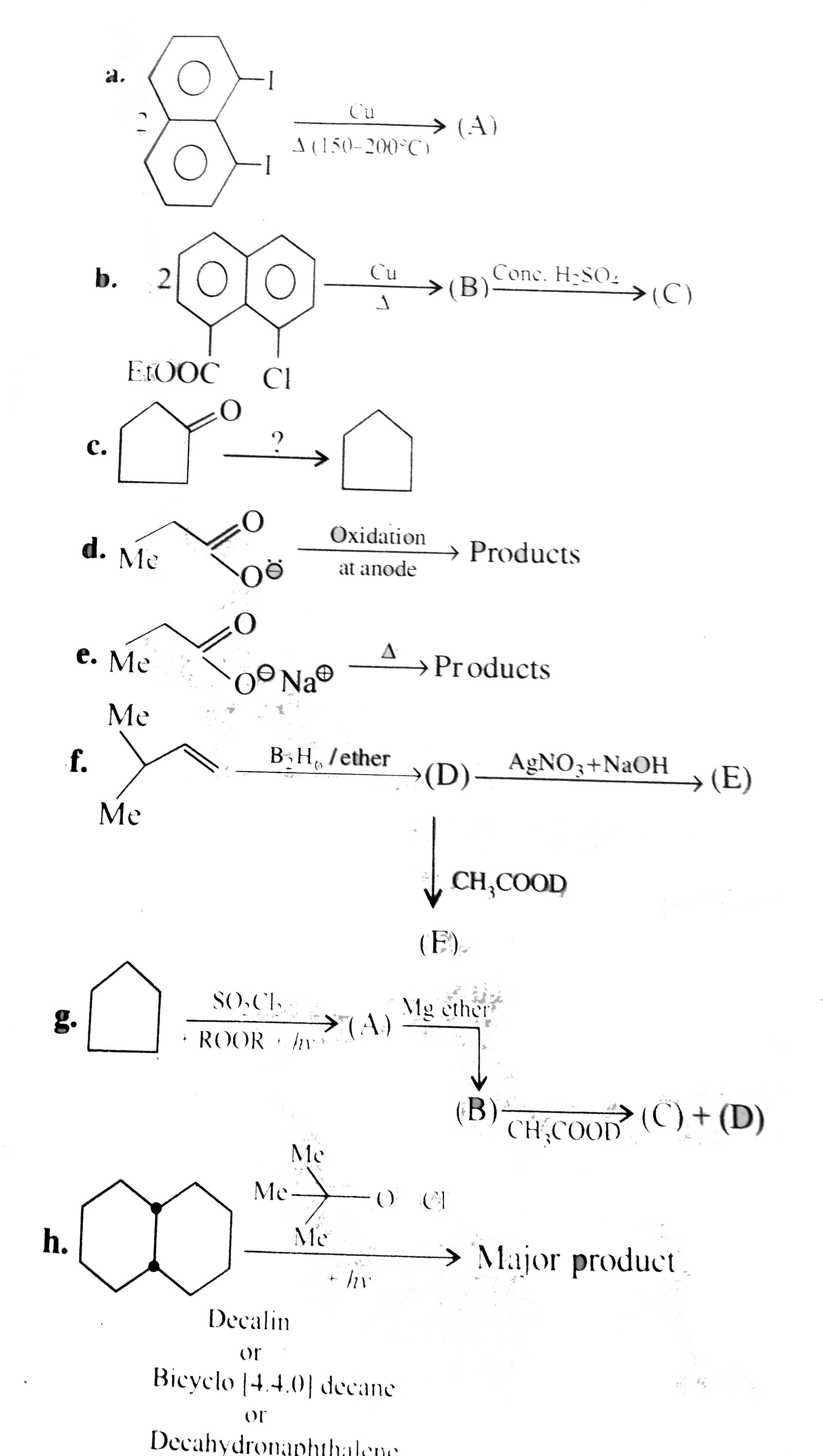
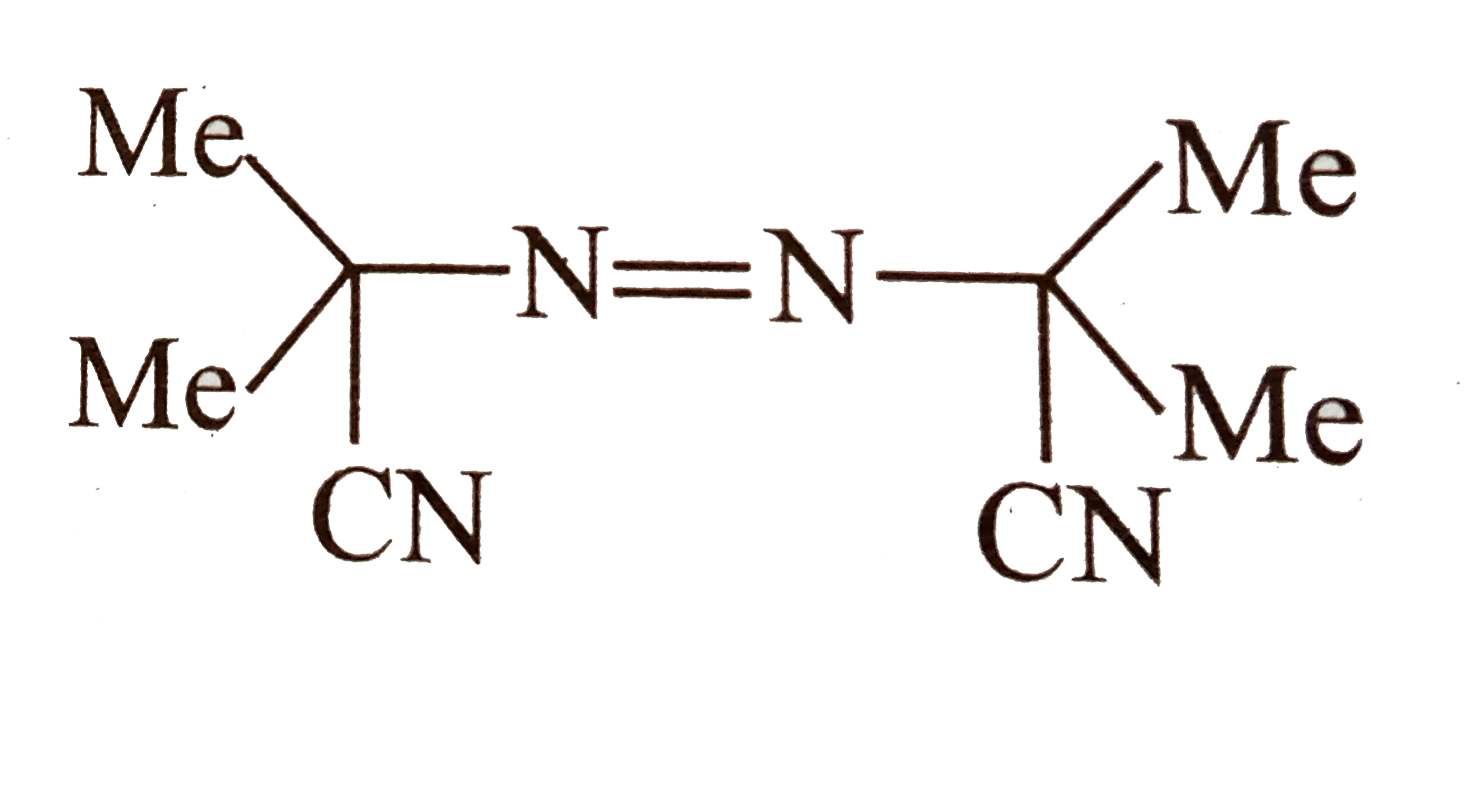
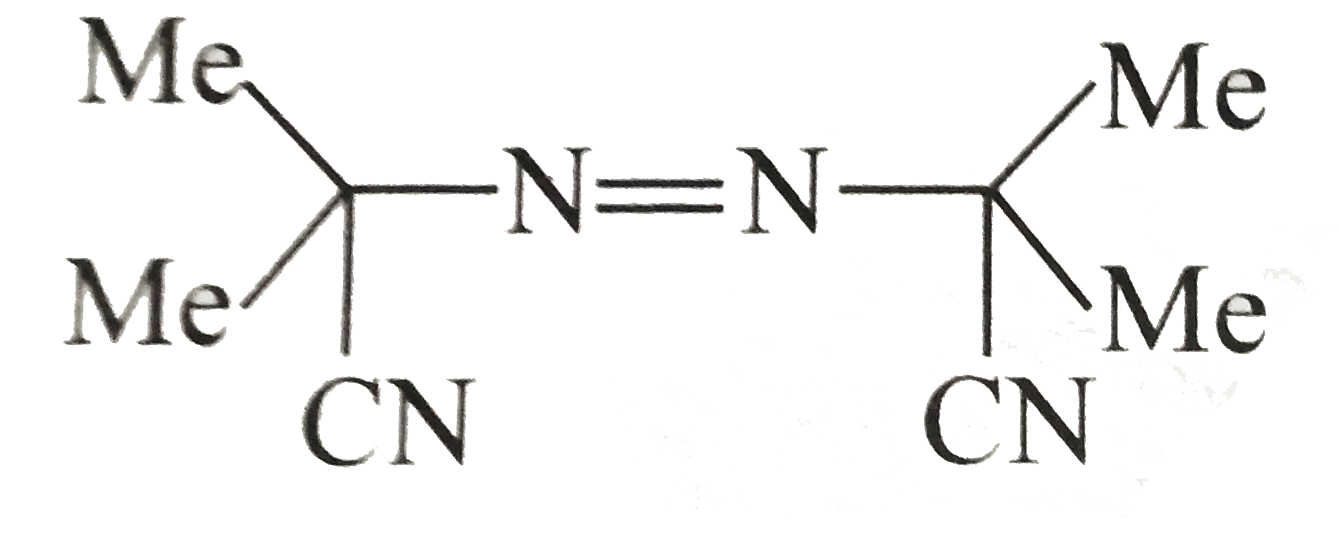
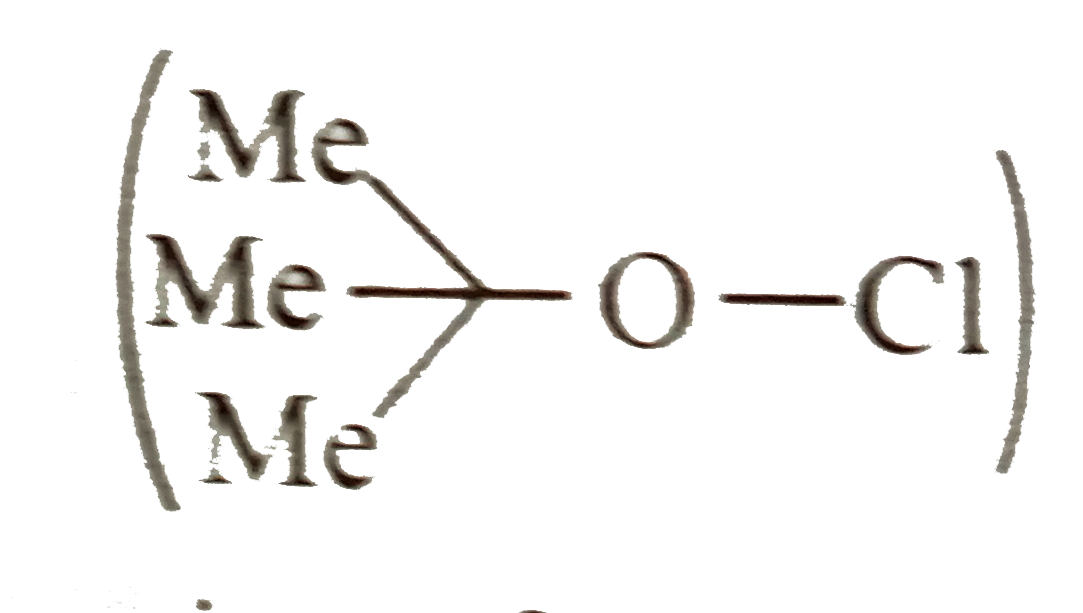 as a radical intiator. Give the mechanism of the reaction.
as a radical intiator. Give the mechanism of the reaction.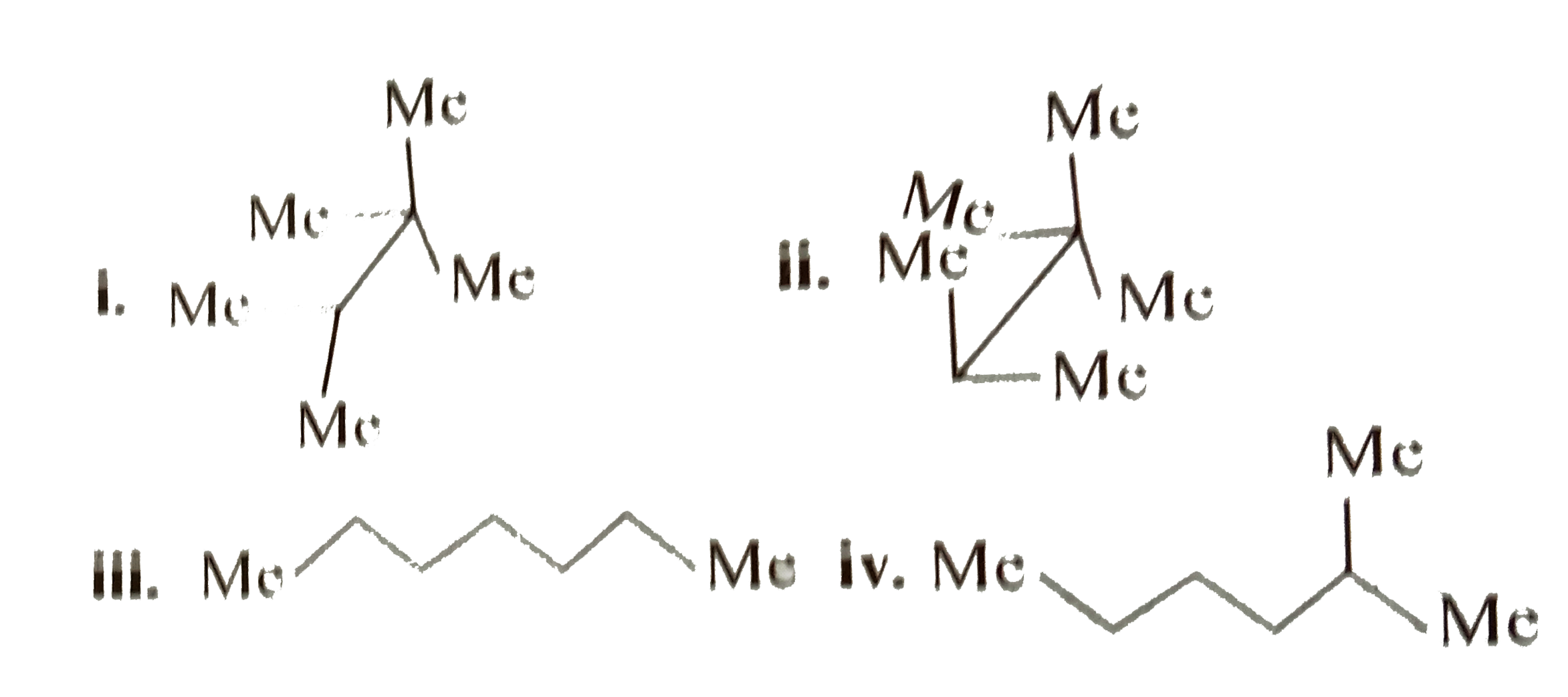
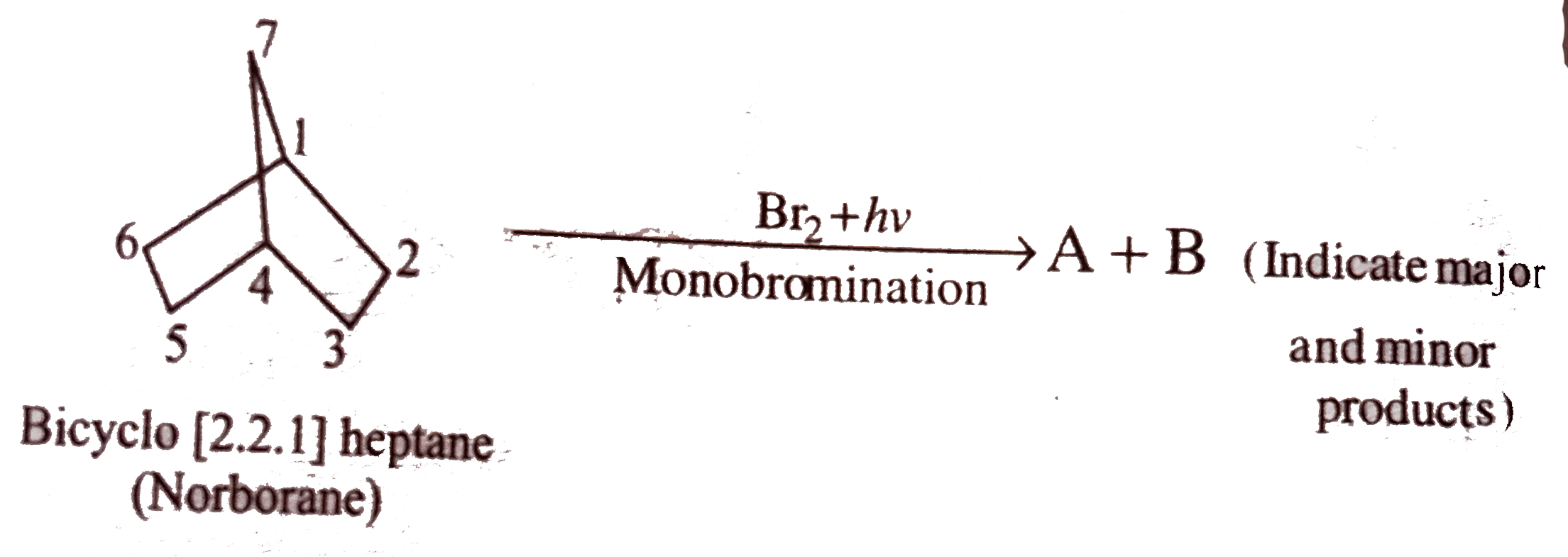
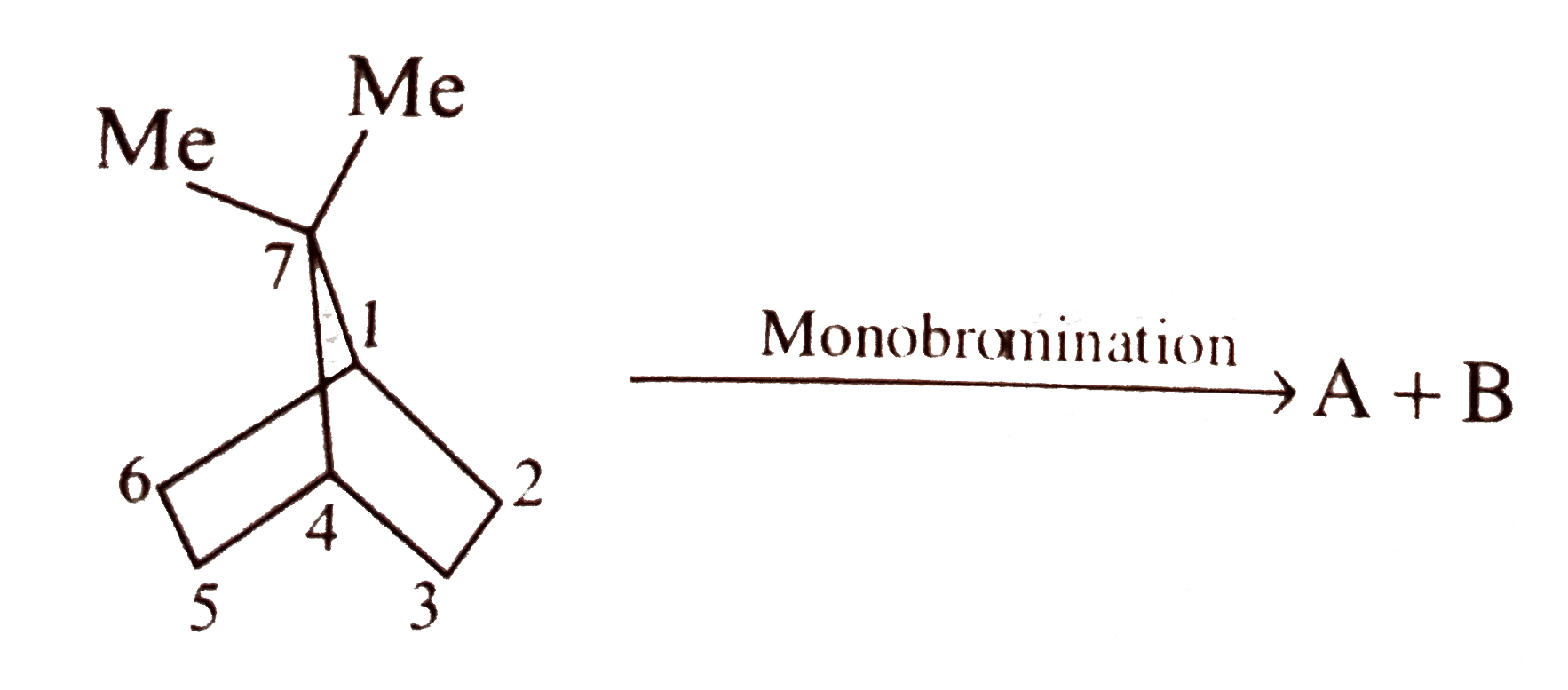
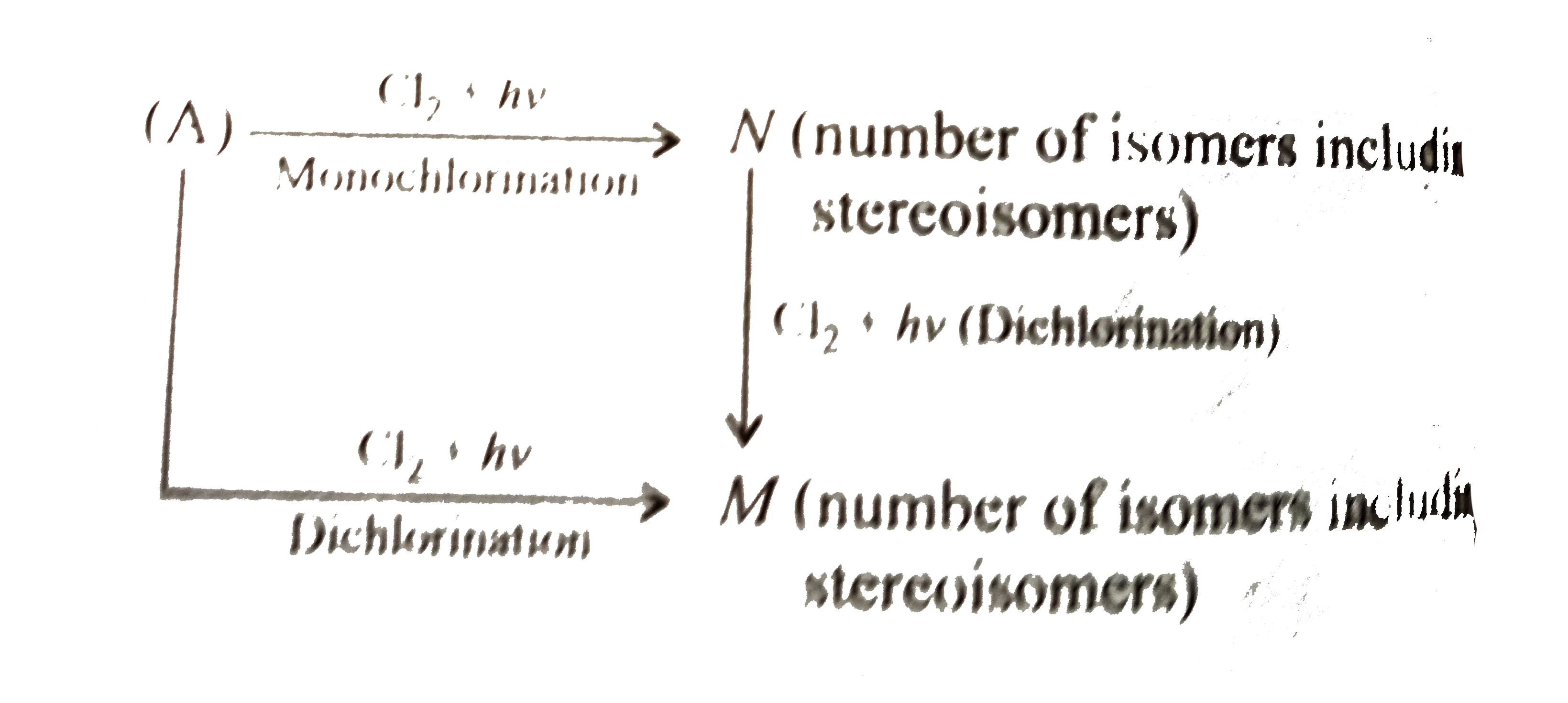
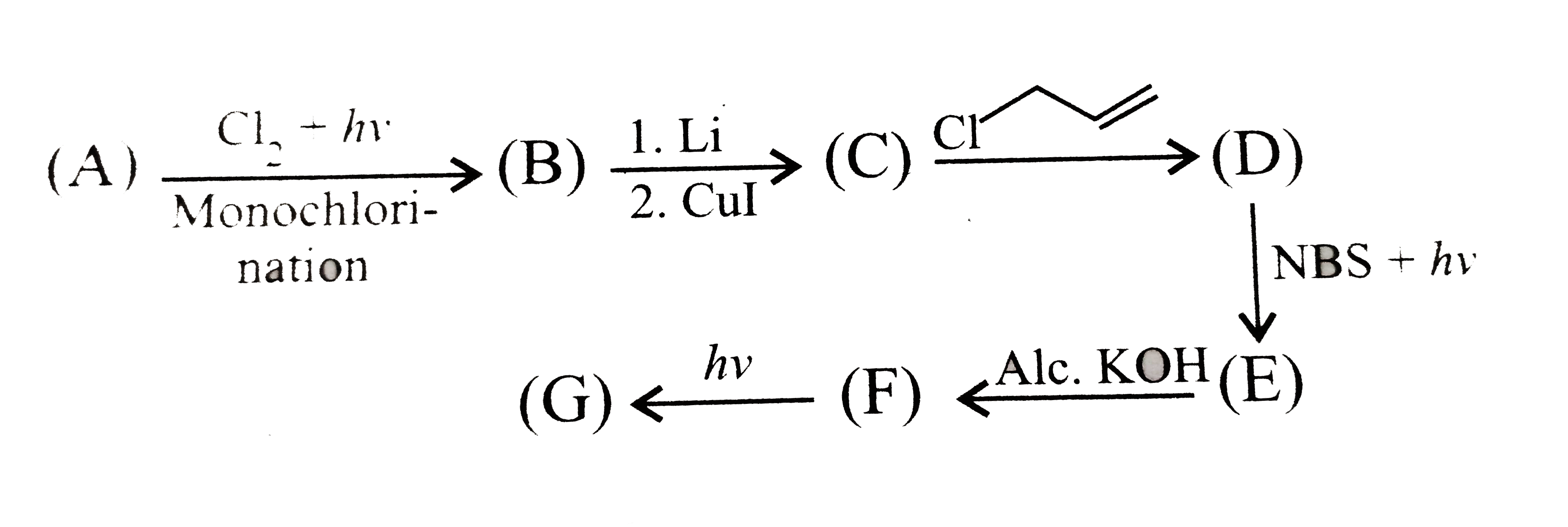
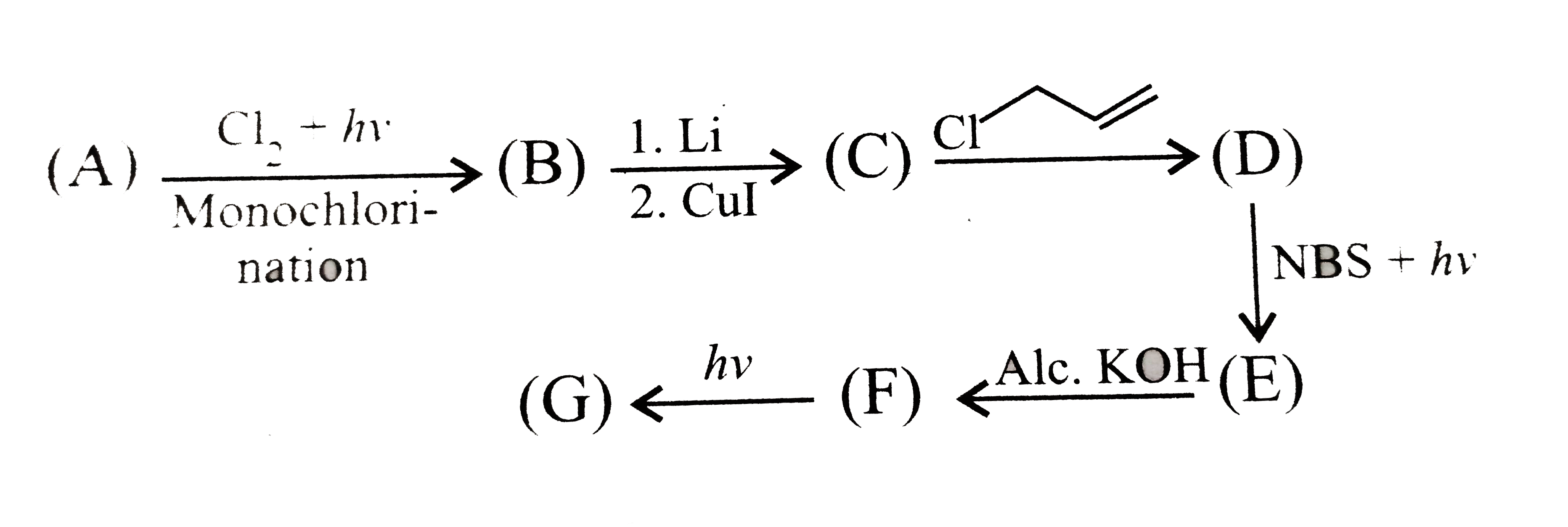
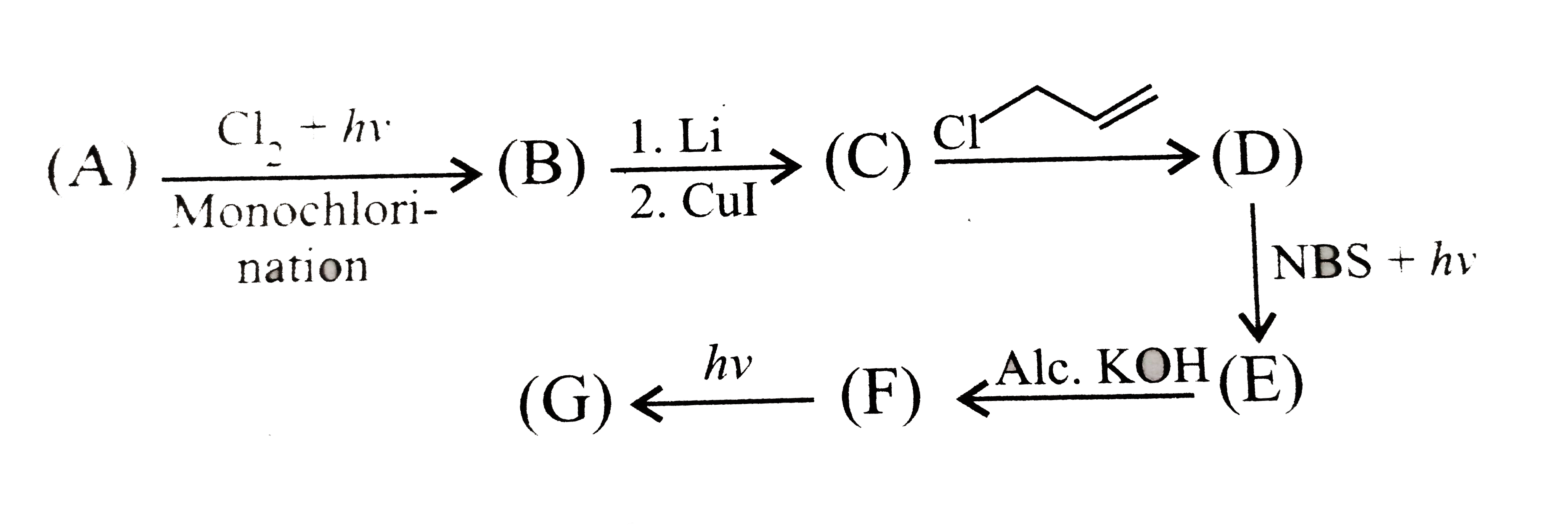

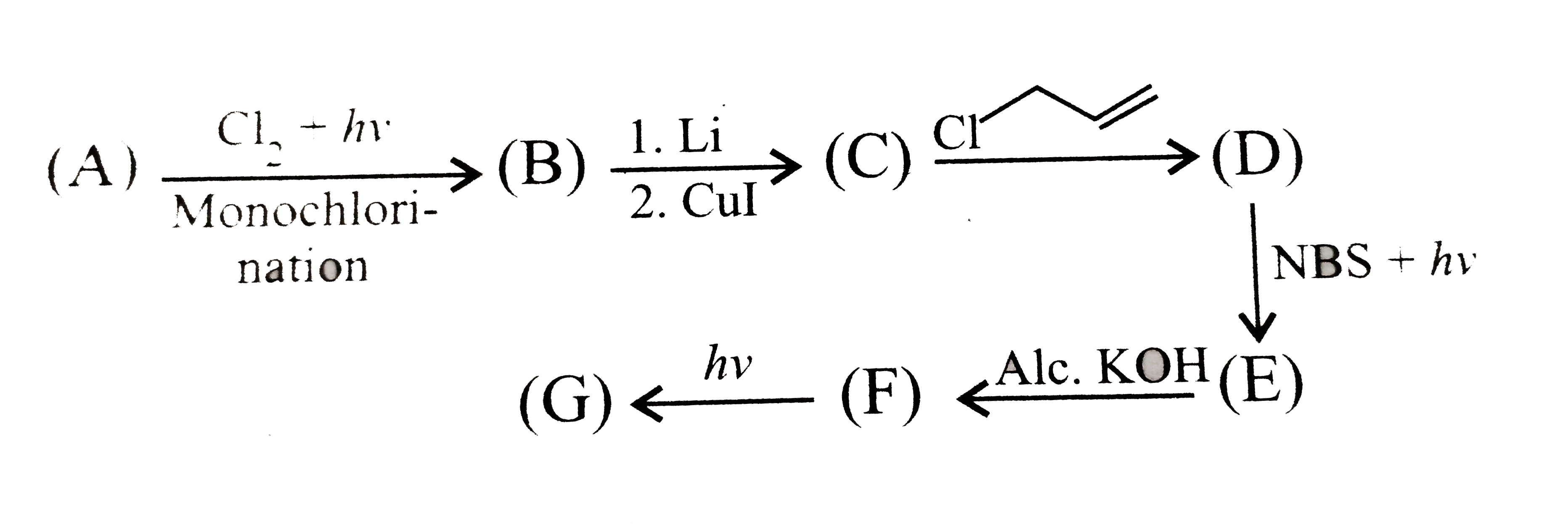
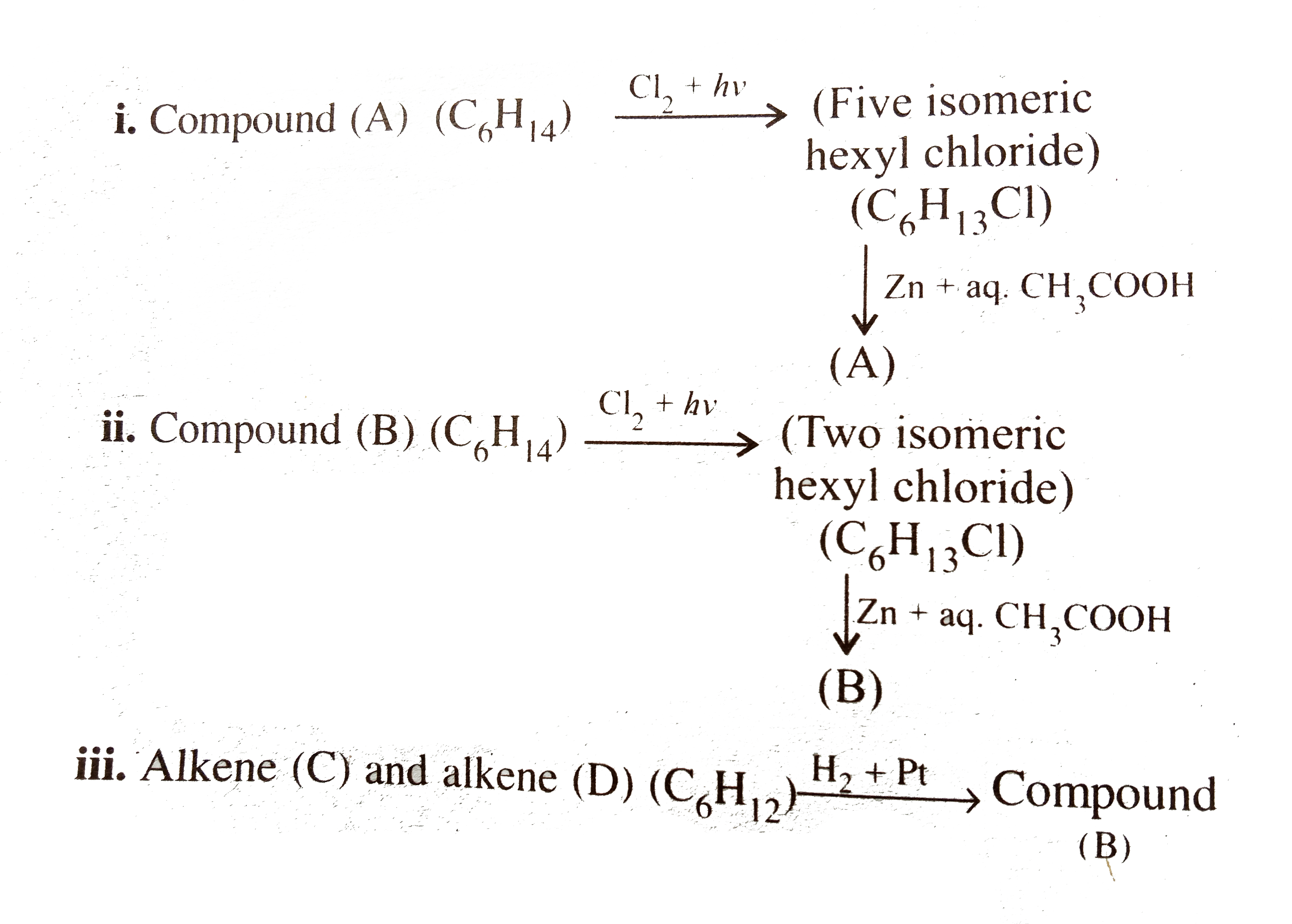
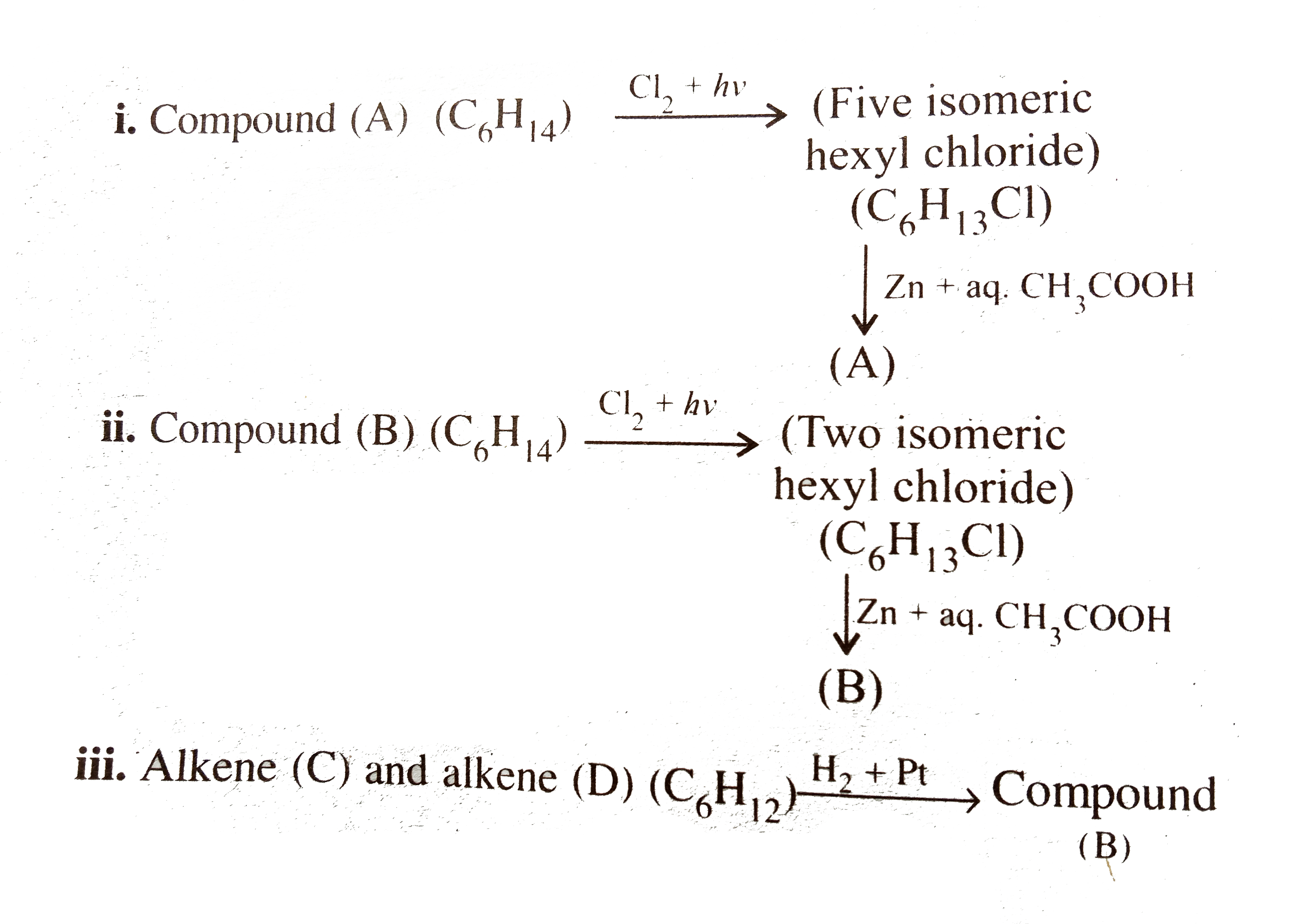
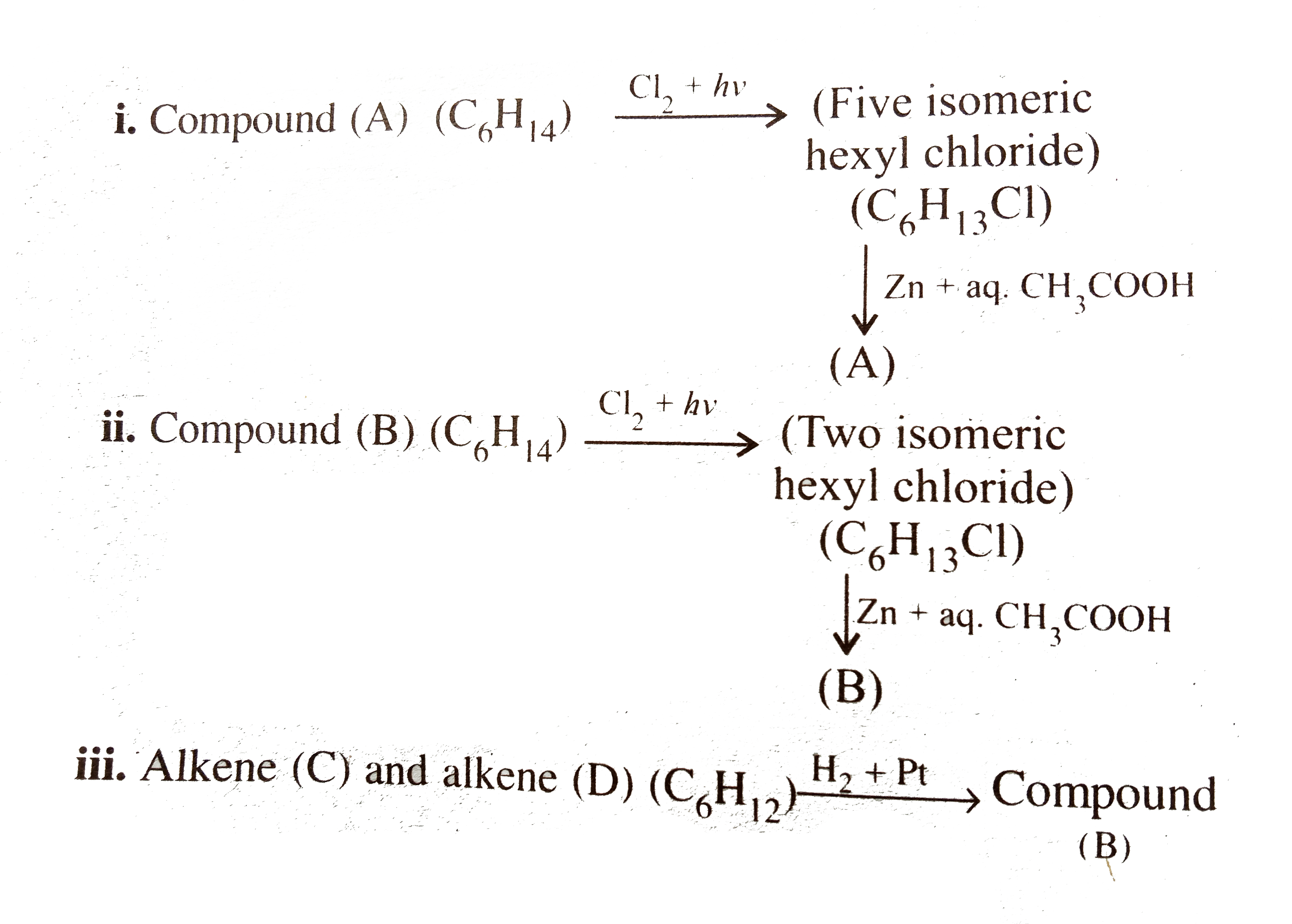
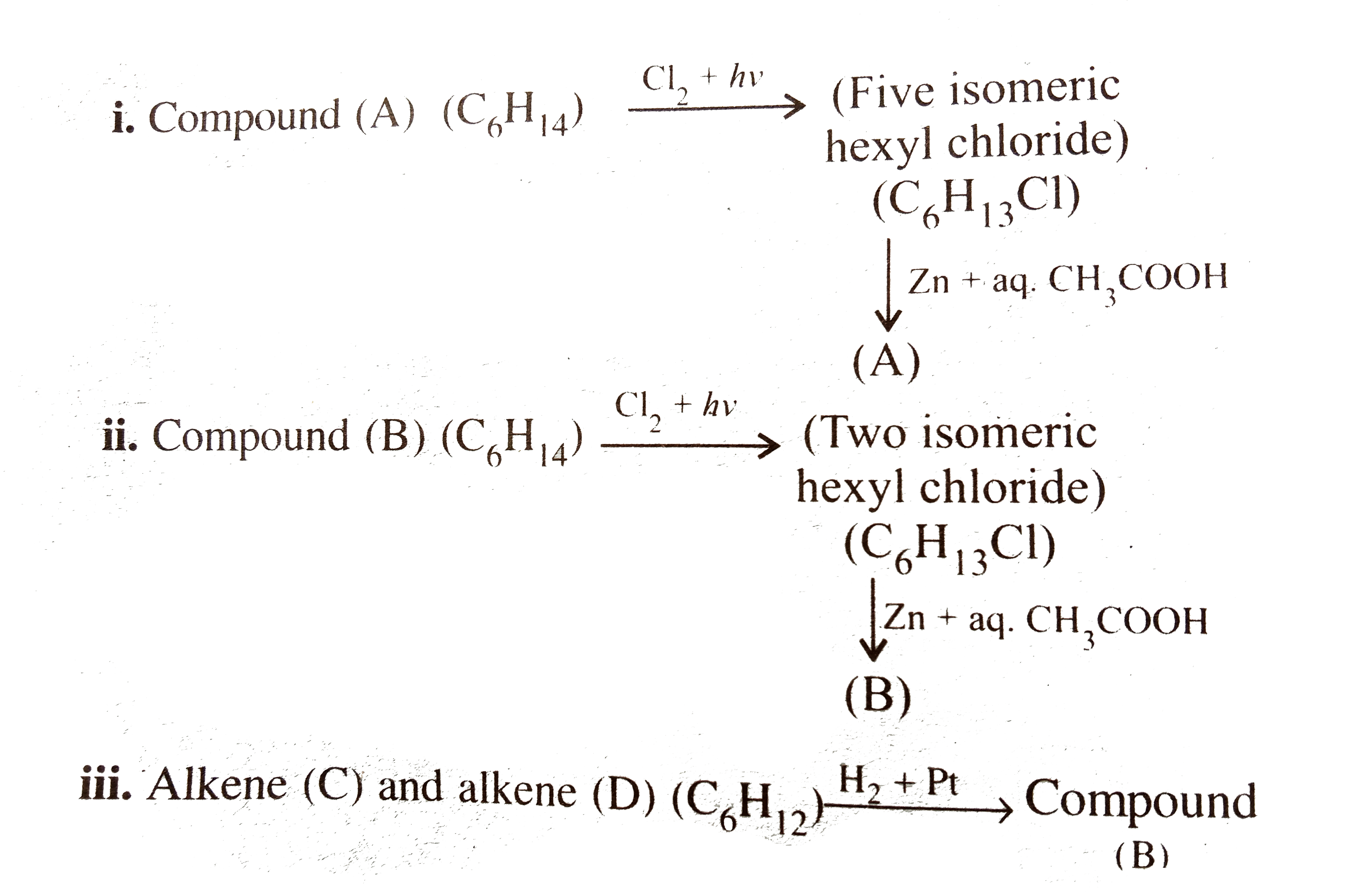
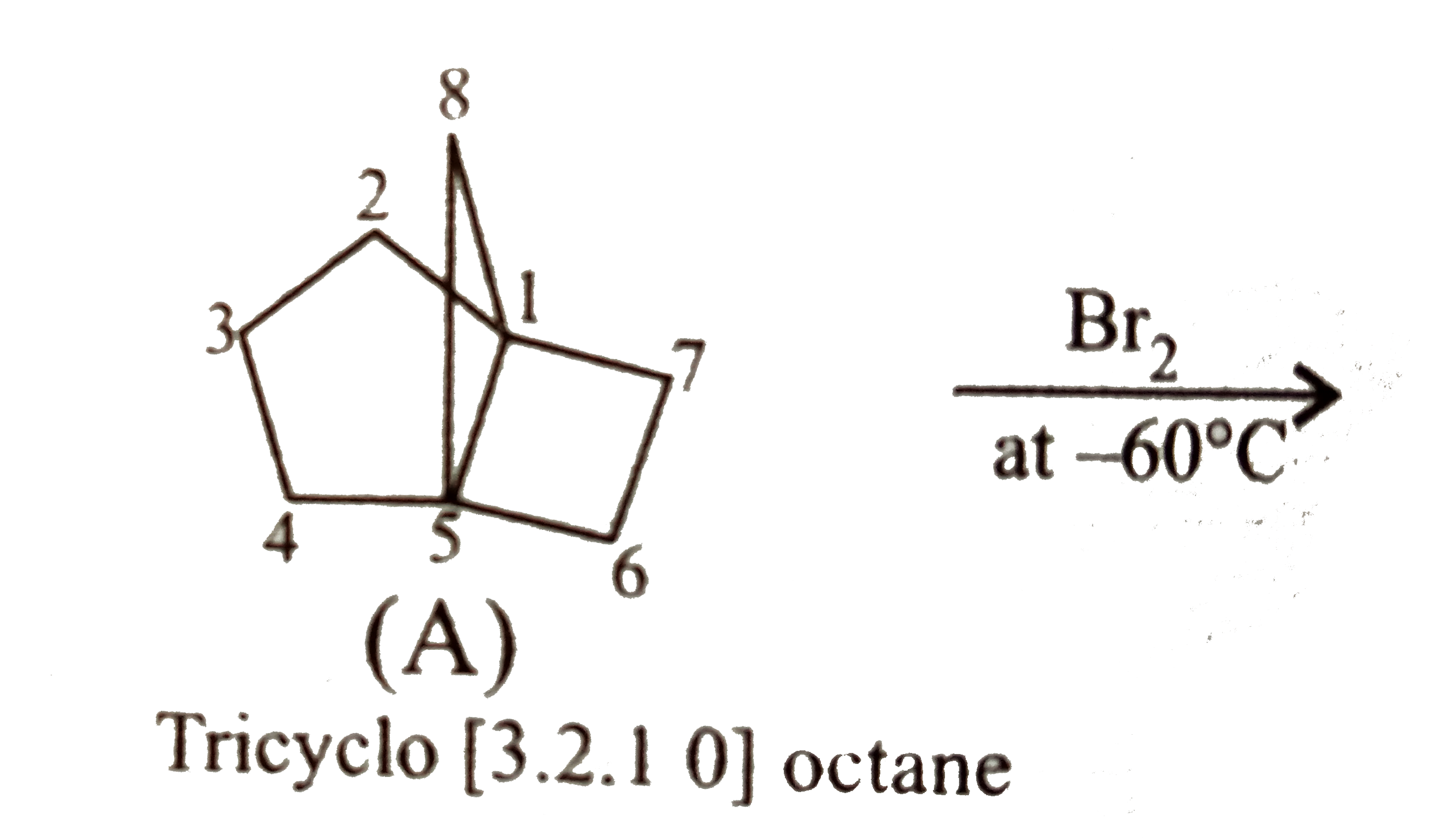
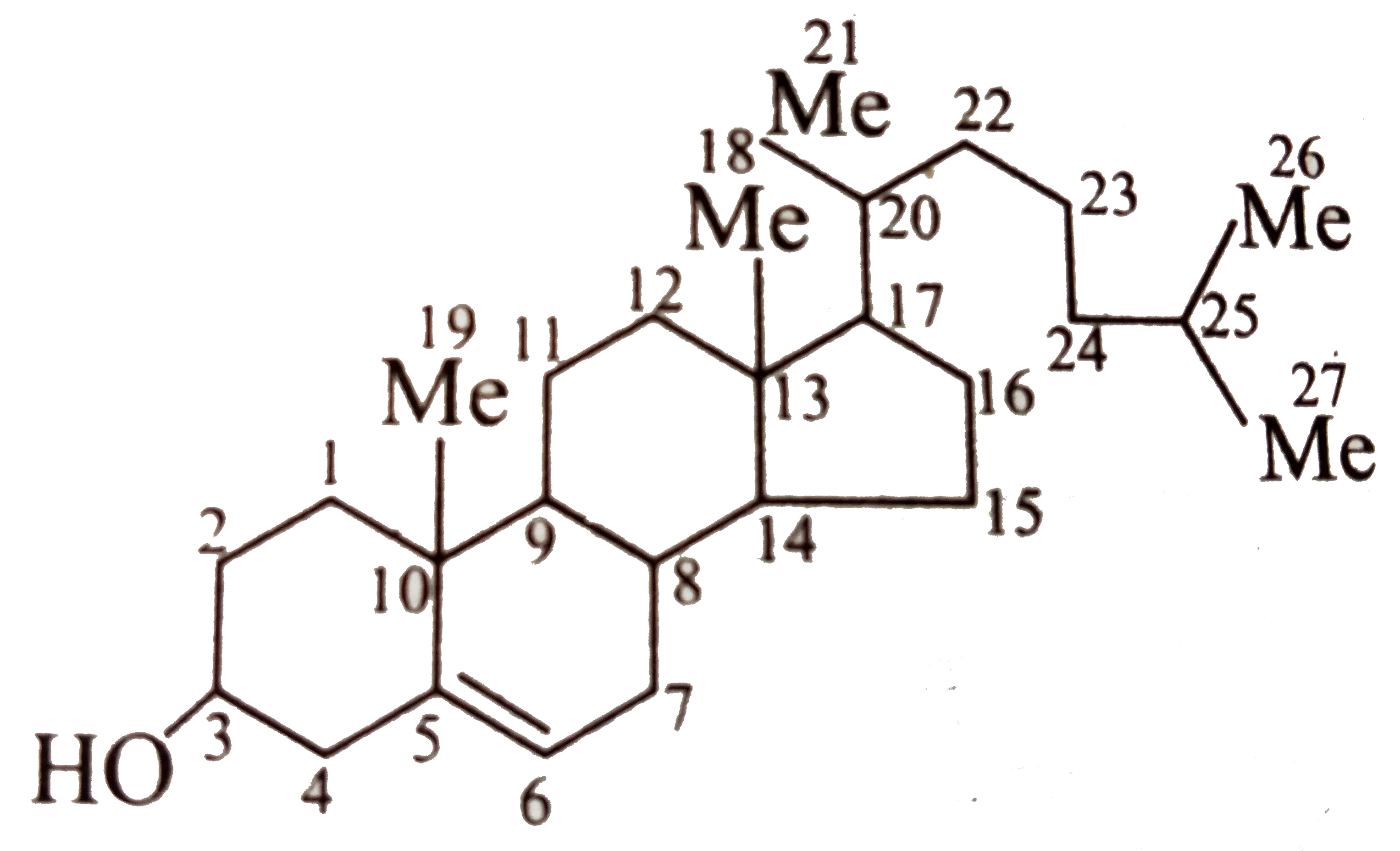
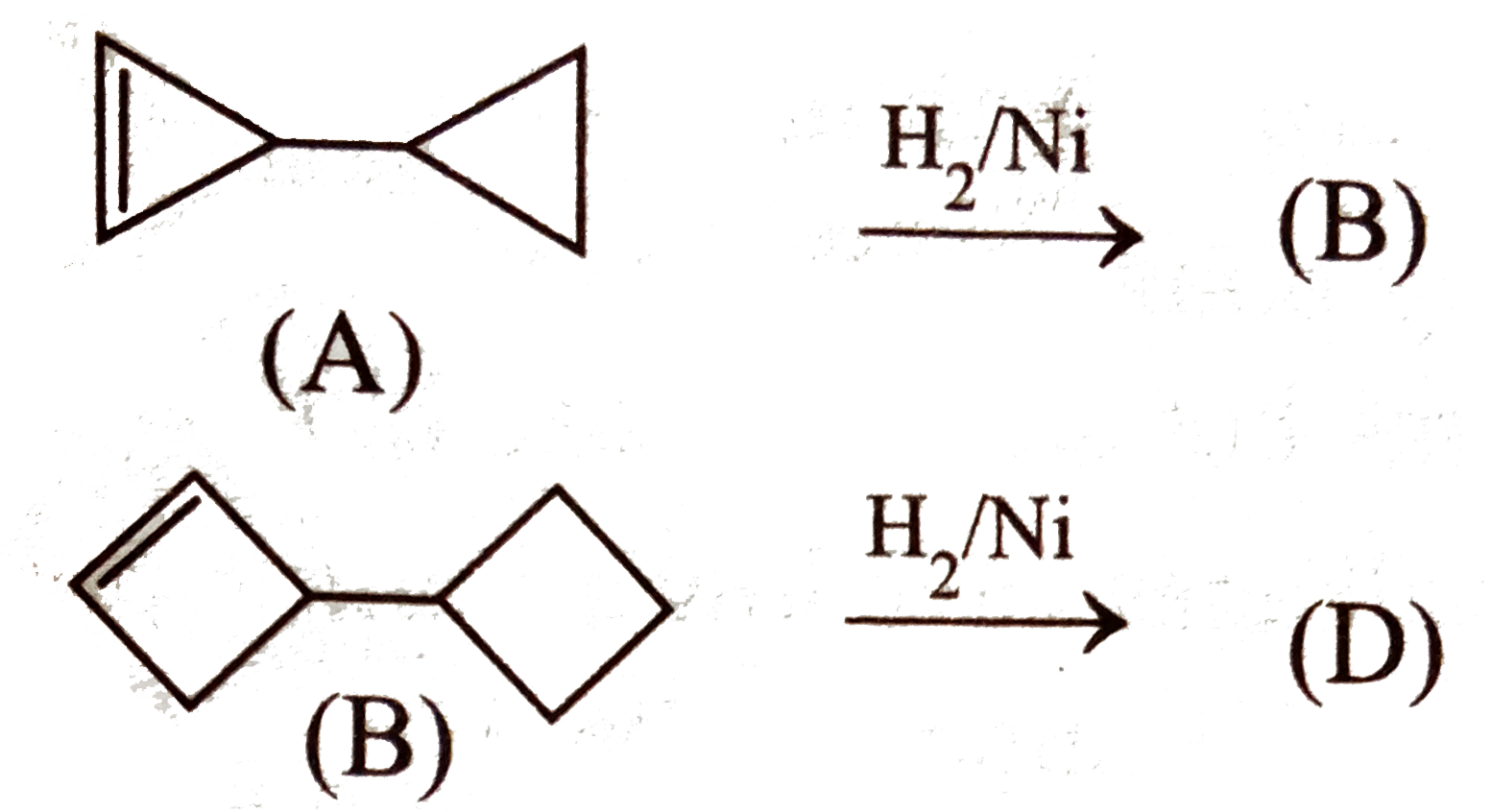
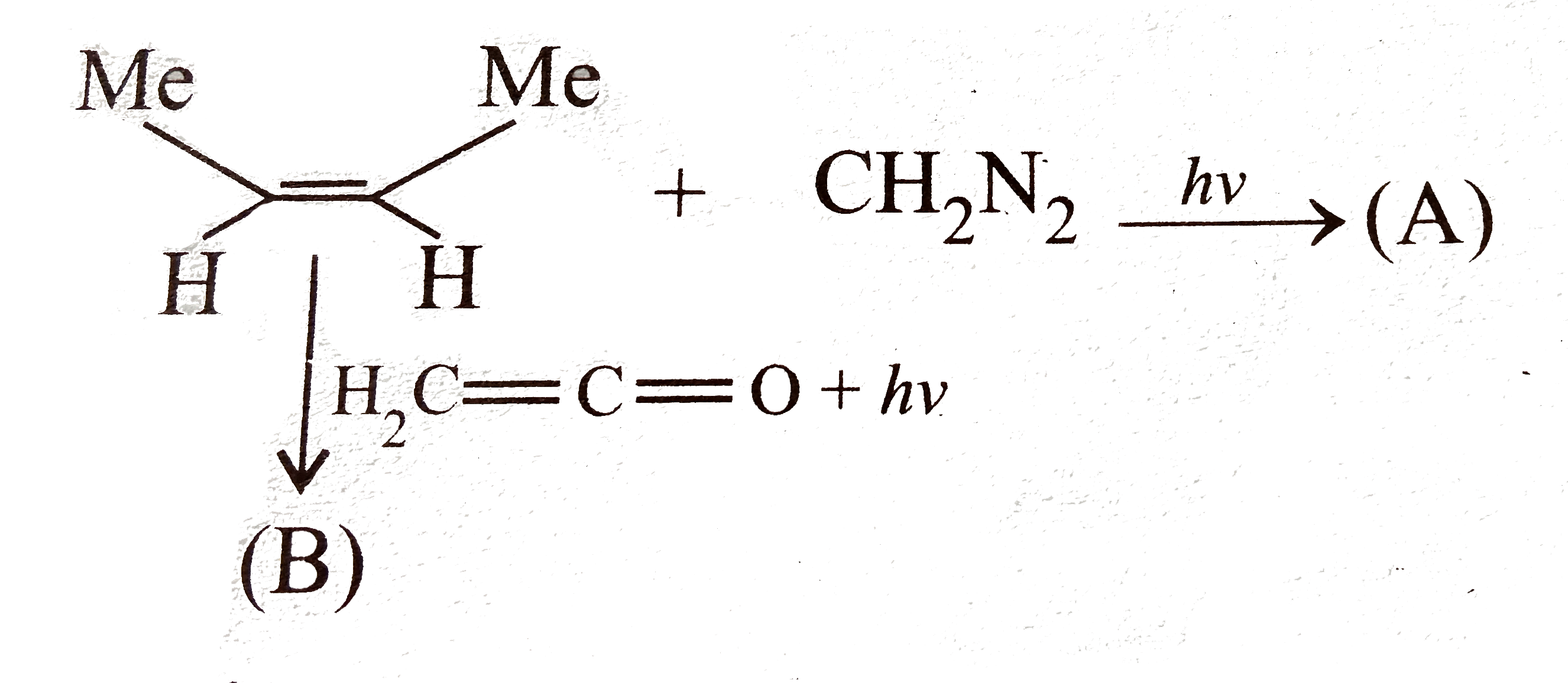
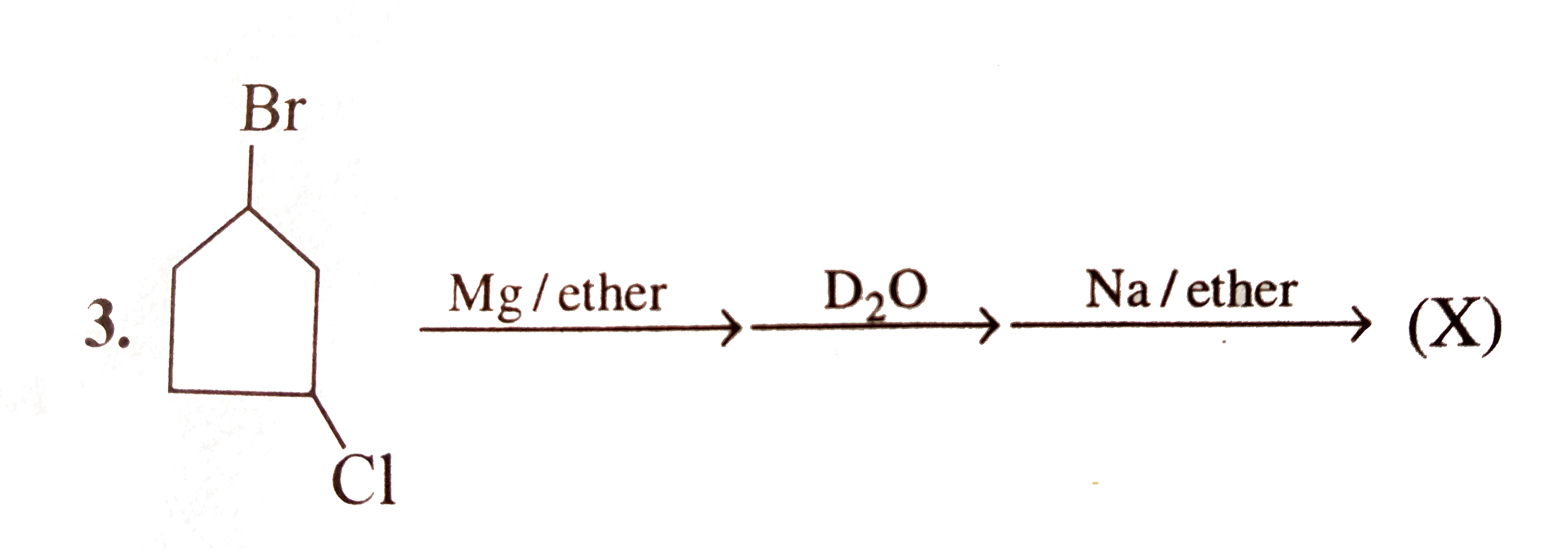


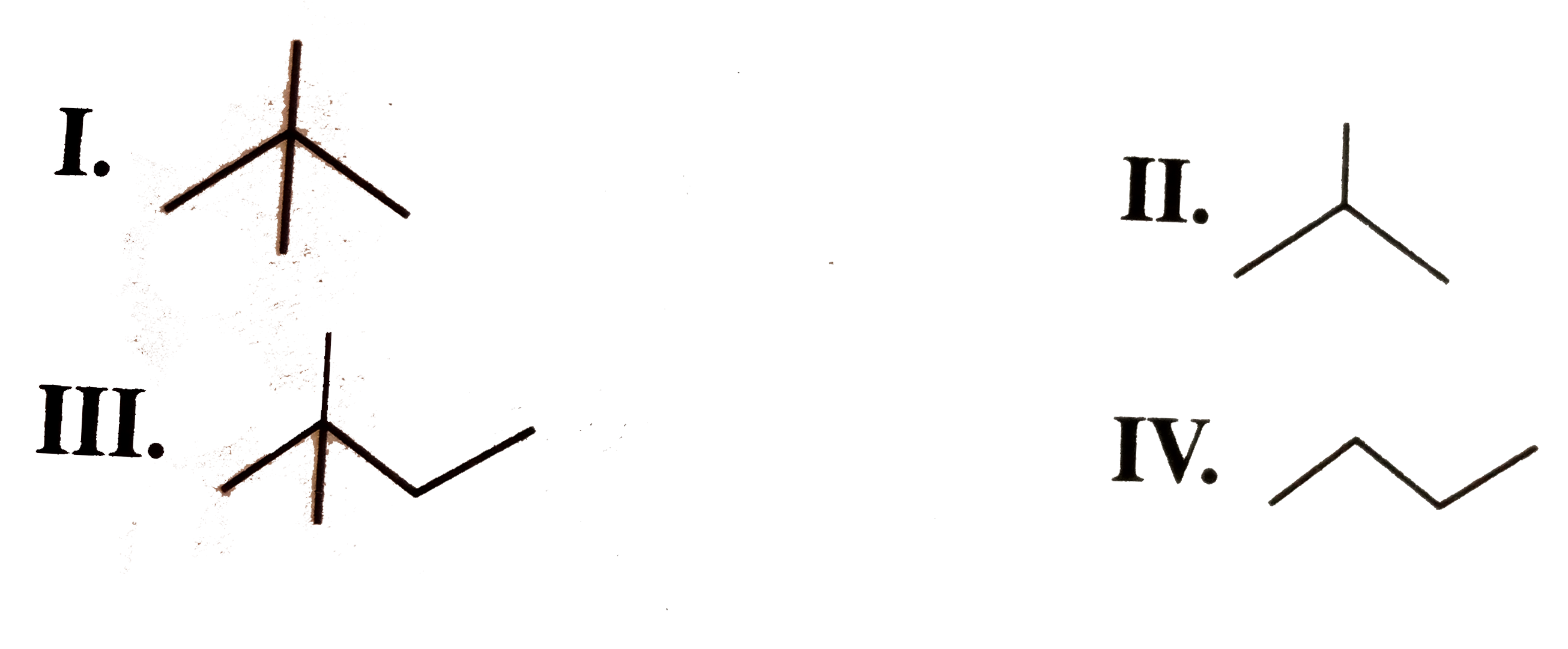
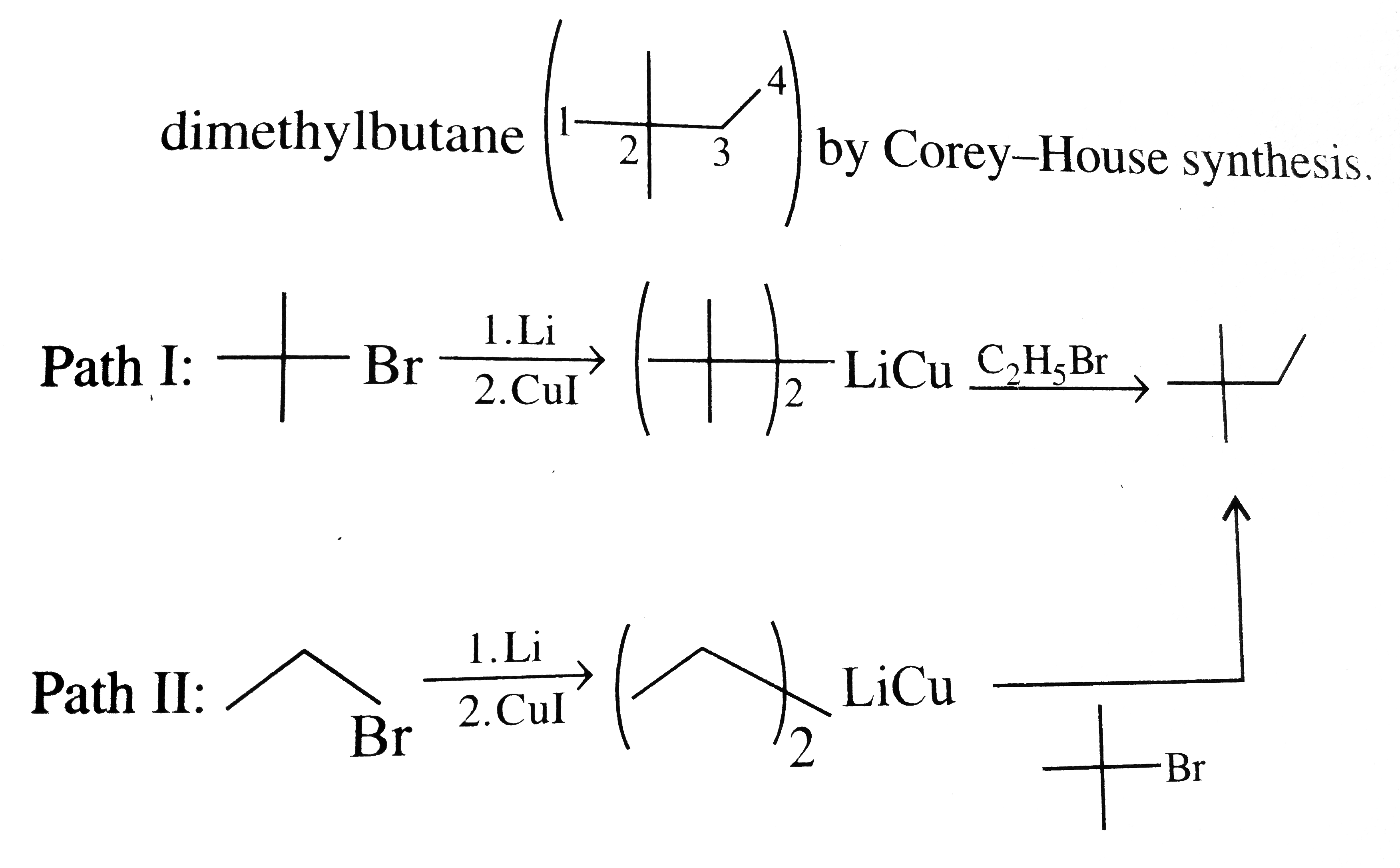 by Corey - House synthesis.
by Corey - House synthesis. 











